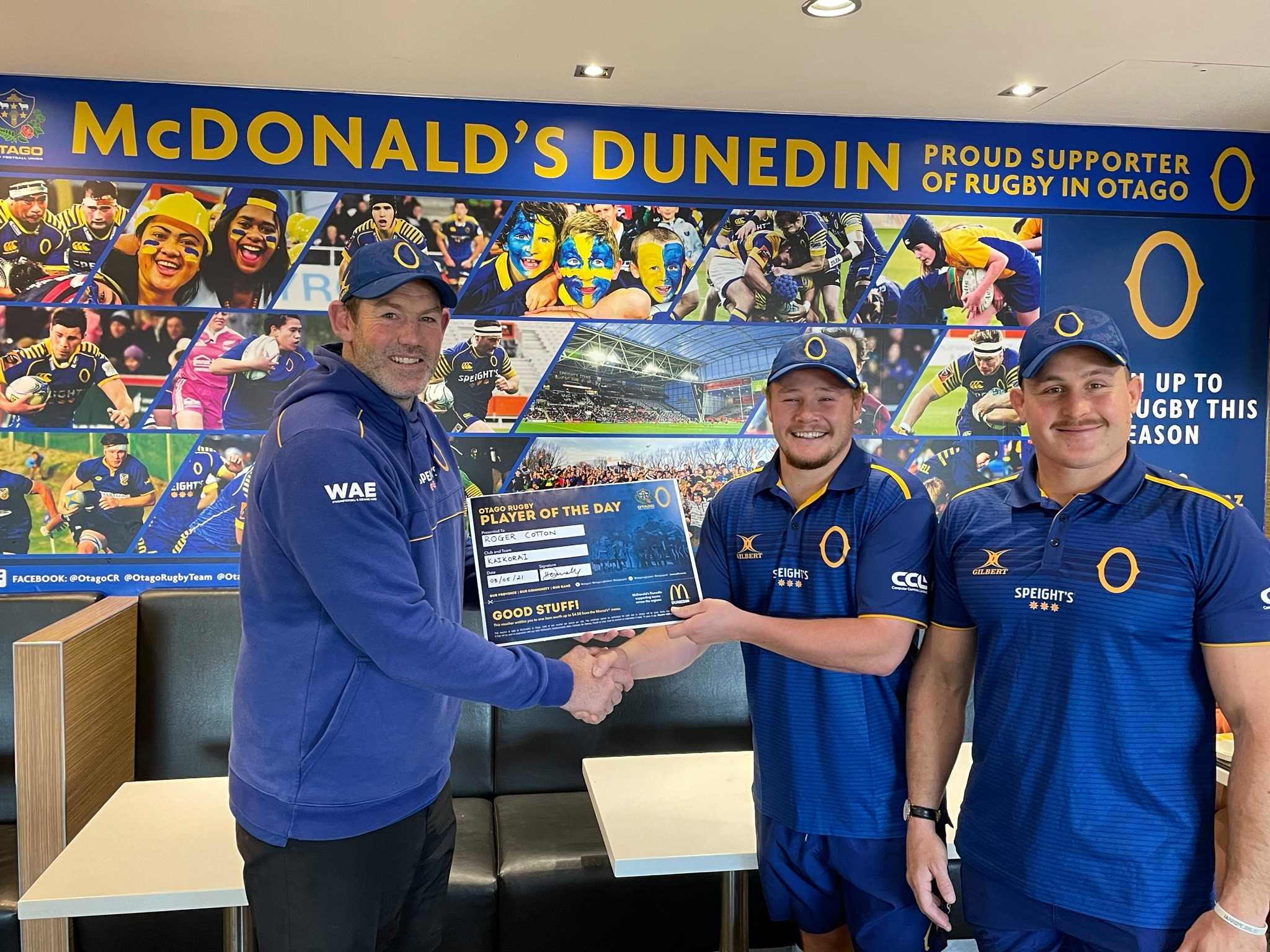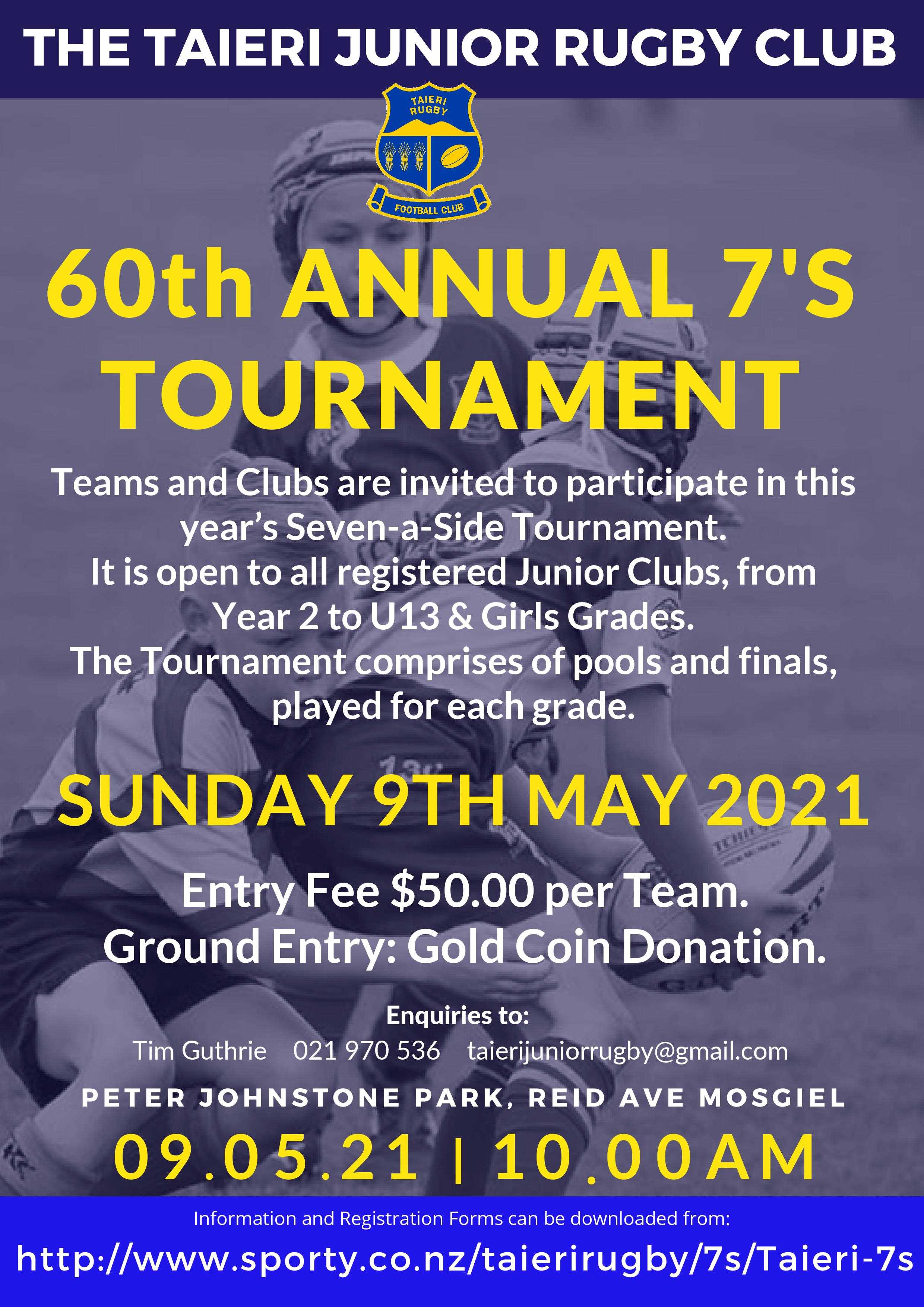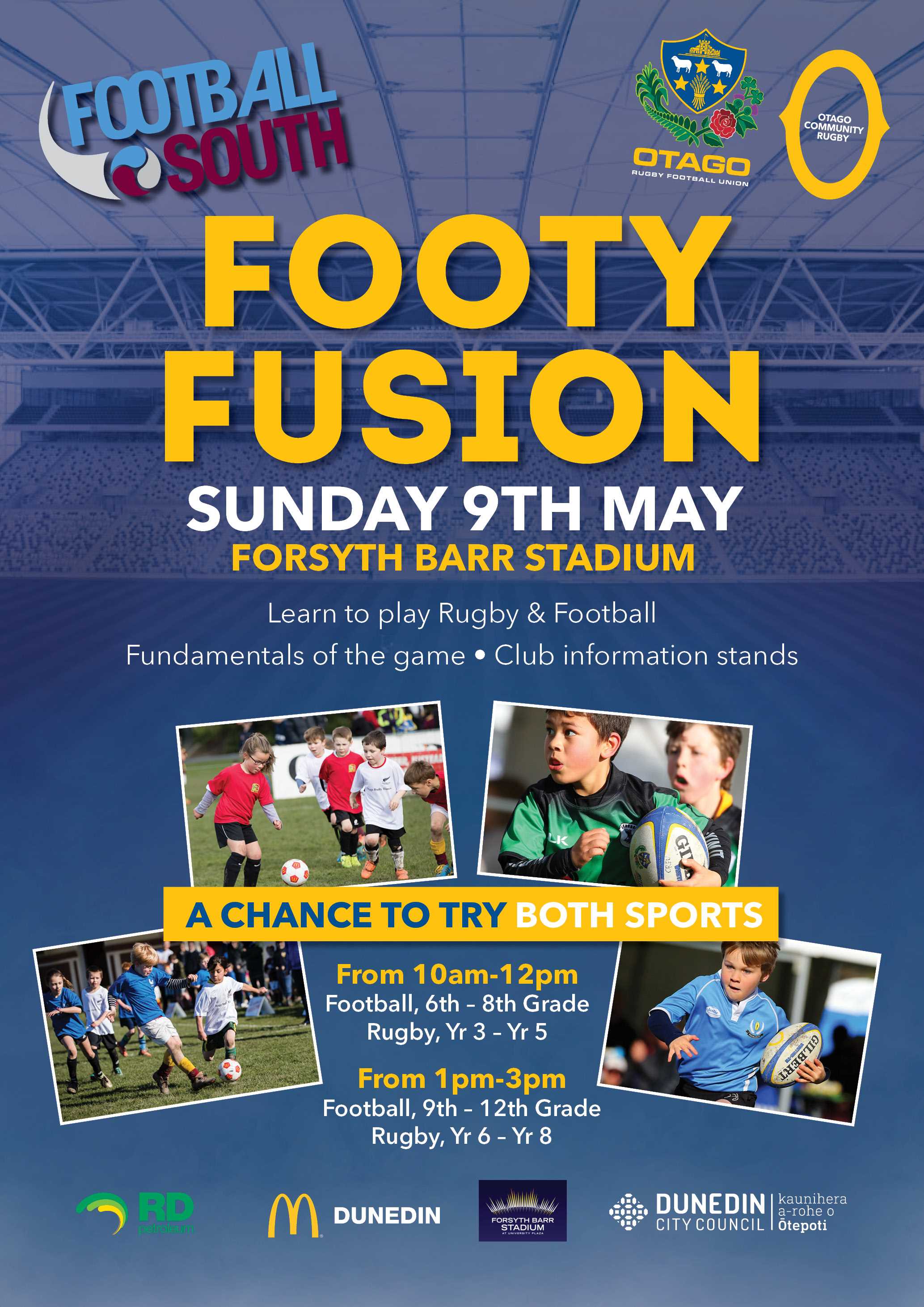 |
Otago Rugby Football Union Newsletter Stay up to date with the latest news from the Otago Rugby Football Union....Club Rugby, upcoming events, courses, NPC Cup action - you will find it all here! Don't forget to check www.orfu.co.nz for the latest news updates during the week and follow us on social media for breaking news, photos, videos and much more... NPC Cup Facebook, Community Rugby Facebook, Otago Spirit Facebook,  |
 |
Editorial Good afternoon Otago supporters & welcome to our weekly newsletter! Exciting news this week for our referees! The Otago Rugby Referees Association (ORRA) have launched their own app to assist referees across the province. Everything our match officials need on a weekend will be at their fingertips from AppointMe access, match official report forms and our Facebook and Instagram accounts. It can be downloaded for iOS and Android check it out HERE The Otago Rugby Union is acting as an ambassador for Veo. We are using the camera's for developing our representative players and match officials as well as allowing our clubs and schools to borrow the camera's. If a club or a school likes the camera, they can then contact Veo direct and make a purchase of the hardware and a monthly licence to use their software. As a partnership, the Otago Rugby Union receives a small fee, and the club or school receives a discount on the recommended retail price. For more information about Veo and their camera, click here. Or, if you would like to book a call from the Veo experts, click here. HOW DOES MY CLUB OR SCHOOL BOOK A CAMERA? Email Paul Thompson: paul.thompson@orfu.co.nz We’re stoked to have McDonald's Dunedin & Southland back on board for another year with the Player of the Day certificates for our Junior Rugby Stars! Maccas are a long standing, Elite Partner of Otago Rugby and are fantastic supporters of the Otago community. It's here!!! Footy Fusion kicks off this Sunday 9th May! The ORFU in collaboration with our friends at Football South are holding the Footy Fusion Day at Forsyth Barr Stadium! It will be a great chance for all kids to learn and try new skills in both codes. Make sure you scroll down for more information on how to get registered. Rippa Rugby starts this Saturday and our annual Sport Clutha Rippa tournament is on Tuesday 25 May. Eilis Doyle from our Otago Community Rugby team will be going to Balclutha to run a Rippa Rugby PD session. She will be there to cover tips for coaches, clarifying rules and any queries that we have. This is a great session for anyone managing/coaching a team at the Sport Clutha Rippa tournament. The session is being held at the Cross Recreation Centre, 18 Glasgow Street Glasgow at 4:00pm on Monday 10 May. In 2021 the ORFU in co-operation with the Otago Rugby Referees Association - Inc have some new incentives on offer to work together with our rugby community to service our game. Lack of Referees is not a "Referee problem" it is a Rugby problem. So we need... RUGBY HELPING RUGBY. We encourage you to think of someone who has a passion for the game. See the new referee incentive we have on offer in 2021 below! Our Website has had a makeover and we couldn't be happier about it! Go check it out for yourself, for all things Otago Rugby click here. Interesting Reads from Otago Daily Times:  |
 |
Referee Profile - Tim Court-Patience  |
 |
This weekend, the Arrowtown vs Alexandra Premier match will be officiated by our great young referee Tim Court-Patience. Tim is from Mount Maunganui and is a Civil Engineer when he is not refereeing. Tim is based in Queenstown and has officiated in our central competition since 2019 and has been in control of a couple semi-finals in that time. On his way to central, Tim had previously been involved in other associations around the country. He is a keen and enthusiastic member of our referees association and we look forward to seeing him out in the middle this weekend.  |
 |
Club Rugby 2021  |
 |
2021 Premier Draw  |
For Southern Region, Central Region and Metro Premier Draws CLICK HERE: 1. Scroll down to your regional competition (Southern, Central or Metro). 2. Use the calendar tool bar on the upper right to change dates/weeks. 3. To save a printable copy of the draw (on a week by week basis) click on ''Export", select 'Draw'.  |
 |
Central Region Competition  |
Many sides struggle when playing the Maniototo Maggots at home. This side is renowned for starting seasons slowly and building but are always tough on their home pitch. The Wakatipu Wolves are weary of this as they have a reputation of not traveling well. Coach Brett Anderson will be hoping his side gets off the bus ready to play. He welcomes back experienced number eight, Brad Cross, flanker and captain, Steve Banks, tight head, Nick Riceman and halfback Ben Young. Although the Wolves maybe missing a couple of backs they know the battle will be up front so may name an extra forward on the bench. Hooker, Jake McEwen has been in outstanding form as was openside Dave Fraser in his first game. Like his father, second five, Ruben Peina has been consistently of high class. Halfback, Eamon O’Brien made his first appearance off the bench last week and changed the game so it will be exciting to see if he can have the same influence this week. Maniototo have no injuries so their forward pack will be at full strength. Coach Willie Miller is expecting the Wolves to move the ball around and rely on their talented backs to win the day. With this in mind the Maggots have been working on staying connected on defence and making first up tackles. Support for the ball carrier has been the other work on, this will not only supply quality ball for their back but deny the opposition turn over opportunities. Young wing, Doug Smith has been in great form and scoring plenty of tries so he is one to watch again this week. With the forecast for rain on Saturday and Maniototo possessing the stronger forward pack, an upset could be on the cards.  |
Metro Competition  |
There will be plenty on the line when joint table toppers Kaikorai and Green Island meet in the Round 5 match of the round at Bishopscourt. The Demons will top their pool whatever happens in the match however GI have University nipping at their heels for the top position in the even pool. Which ever way the posts swing it will be Kaikorai vs either GI or University in the Speight’s Jug final, played in the Gallaway Trophy round. The Grizzles come off a tense battle against the Hawks to hold on to the Speight’s Challenge Shield last week, missing will be Ray Nu’u who is out with concussion symptoms, but Levi Harmon and club stalwart Sam Eriepa will run hard in the midfield. At times it will look like an MMA battle on the ground with the likes of McDowall, Russ and MacEwan tearaways over the ball, a contest within the contest. Fire power galore for the Demons off the bench where they will introduce Henry Bell and Jonah Aoina late in the piece and welcome back to season skipper and GMA superfan Grayson Knapp for his fist run in season 2021. A tight one to ensue but with the Grizzlies the most to gain and a chance to replicate knock out footy, GI by 5.
Top of the Table Clash As Round 1 comes to an end in the women's comp we will see the top of the table clash. University will travel down the road to be hosted in Owaka by Big River Country. Both sides have now faced their first loss of the comp last week. University going down in a very tight tussle against Pirates Wahine. BRC being defeated by a very physical Waitaki Wahine up in Maheno. This Saturday's clash will play favour to Big River Country a little more as they are playing at home and having a 9 day turn around on University’s 7 days. This will be a solid battle up front with both sides naming exceptional forward packs. The Bookworms are always very good at home, but will they travel well? They will be packing a bit of experience in their bag as they have a fair few players that have been a part of big clashes like the match they face on Saturday. South Otago raised young gun Keely Hill may feel at home playing in Owaka which will be an asset to the Bookworms side. Otago Sparks cricketer Eden Carson will be taking control of the University side at half back. University has named a dangerous loose forward trio, all three are fearless in the contact zone. Bree Thomas and Leah Miles are always on the hunt for a turn over if Big River gives them an inch they will be in. University have named a very slick back line who will be working to width to get around the BRC defence. Big River Country will be chomping at the bit to take on the University side. Big River Country have had a flying start to their first season in the comp only facing one loss so far and they will be intending on keeping it that way. Captain Tegan Hollows will be looking to get a good win over her old club. Hollows will continue to lead BRC from her favourite position at the back of the scum. She has been outstanding for the BRC side scoring points in every match so far. BRC will be missing experienced prop Isla Pringle this weekend. With Pringle's absence they have made a few tweaks to their front row. Emma Takapi and Hope White have been absolute work horses this season and will be bringing the heat up front on Saturday. Halfback Nicole Kennedy and Samara Soper have been solid for BRC this season, who both used to play for University therefore will be extra keen to get the win.
 |
Southern Region Competition  |
Round 7 Snapshot
A top of the table clash between the two unbeaten teams in the competition. This is also a replay of last years final. Both sides have played some exquisite rugby this season and head into this match confident. West Taieri will hold a slight advantage heading into this match being at home but the travelling Valley side know what they need to do to win.
Heriot are back at Death Valley after what seems like an age. They lost their first match of the season to Clutha Valley last week and were found out somewhat. Toko picked up their first win of the competition against Roxburgh last round which will give them confidence. It will be a physical match with the home side strong favourites.
The bottom of the table clash which promises to be a belter. Neither side have won a match yet this season. Roxburgh sit above Clinton on the table courtesy of two losing bonus points. Neither side have lit the competition on fire yet this season, but a win here could kick start something special.
The Greg Smith Memorial Trophy is on the line at Swamp Hen Park as Owaka host Crescent. The home side sit above Crescent on the table in fifth place at the moment and are coming off the back of two consecutive wins. Crescent had the bye last weekend and will be disappointed with their current standings. This will be a good battle with the Coal Miners slight favourites heading into the match.  |
Coaches Corner with Aaron Callaghan  |
 |
Developing Decision Makers Rugby like all invasion sports could be described as controlled chaos. During a game our players are expected to make multiple complex decisions in the blink of an eye. Consider the act of passing. The player needs to maintain awareness, what are the opposition doing? What is their own team doing? How will weather conditions affect the pass? What is our game plan? Let's not forget being physically fatigued or stressed will also influence the decision-making process. At the highest level, the great players are the players that make the right decisions. It is not necessarily the fastest players that will be the most successful but the fastest thinker. How do we develop decision making capability in our players? Let them make decisions! Why don’t we take a moment to look at a typical training session across the region? Some light jogging, stretches etc before hitting a few passing waves, followed up by a couple of prescribed drills depending on what the focus is for the session. Then split backs and forwards. Backs will sweep up and down the field looking like world beaters as they run through their moves unopposed. Forwards might run through a few unopposed line outs just to clarify timing and calls. Bring it back together to finish with an unopposed team run or team run with reserves used as defence that are about 50% engaged. Finally to finish off, the forwards will put a few scrums down on the scrum machine. For good measure throughout the session the coach will often front foot the decision-making process by telling players what to do. Have you ever heard a coach yelling “shift the ball wide there is space or push up hard on D” I’m sure you would agree if we actually broke down the session there has been very little opportunity for our players to develop their decision making ability. Just like any skill, decision making takes time and you need to get your reps in. As mentioned previously rugby is a chaotic sport, training should look chaotic. The more training can look like the game, the better the transfer will be from what you do on the training paddock to game day. As a coach you want to create a training environment that forces players to make decisions. If you are limited in numbers, you are probably best to split the squad and have defence and attack working at the same time for the majority of your session. Yes, with opposition training will look messy and success rates might be down, but that’s ok! You are developing those critical skills and decision making in a context that will transfer to game day. The challenge this week is to think about how you could bring more decision making into your practice to help your players prepare for the demands of the game. Keep up the great work. Hope this gives you a few ideas. Let me know if there are any specific questions you’d like answered on the coaching front at aaron.callaghan@orfu.co.nz Cheers Azza  |
 |
 |
How good are the Macca's player of the day certificates!!! Our head coach Tom Donnelly & Otago Club Rugby & NPC players Slade McDowall & Dylan Nel sure think so.  |
 |
 |
 |
ORFU Partner with Football South to Deliver Footy Fusion  |
 |
For the first time Otago Rugby and Football South, two of the larger winter participation codes, will come together to deliver a Footy Fusion experience to the community under the roof at Forsyth Barr Stadium. The event which has been made possible via Dunedin Venues Community Access Grant, is aimed at providing those current and future participants the chance to learn new skills and enjoy a fun day playing both codes on the same day. ORFU Capability Manager Simon Wallace is excited to see a day like this unfold “we have had some anecdotal feedback from our community the desire for children to participate in both sports, so this event goes a small way to meet that demand. Our biggest competition as a regional sporting organisation is not necessarily other winter codes but the ability for kids to choose to not participate in any sport. By working with Football South on this event we hope to give new participants an experience they enjoy by trying both sports for the first time”. Football South Operations Manager Julia Connor said “this is the perfect opportunity for every child in the region to have a go at New Zealand’s most iconic sport rugby and the world’s most iconic sport football. Players might not have played rugby, football or any sport but this gives everyone the opportunity to try something new and to do so in the stadium”. This collaborative event delivering sport to the community is a perfect adoption of Sport New Zealand’s Balance is Better philosophy that puts the participant first with a focus on maximising participation and skill development. Information on the registration process can be found on the Football South and Otago Rugby Facebook pages and registration link HERE. Both organisations will also communicate key details via their community club networks and with the help of Sport Otago via primary and intermediate schools in the region.  |
 |
Small Blacks Coaching Courses  |
 |
Coach of the Month  |
 |
 |
 |
 |
 |
2021 Referee Incentive  |
 |
 |
First Aid in Rugby Courses  |
 |
There are First Aid In Rugby courses being held in Otago on Sunday 16th May at Cromwell Sports Club, Saturday 29th May at Forsyth Barr Stadium and Sunday 30th May at Venue TBC. Please register through this link if interested- Click Here  |
 |
 |
 |
Phone: +64 3 477 0928 Email: orfu@orfu.co.nz Address: Forsyth Barr Stadium, Level 2A, 130 Anzac Ave, Dunedin 9016 Postal Address: PO Box 691, Dunedin 9054  |